Info for
New Pet ParentsHANDOUTS FOR FOSTERS & NEW CAT-PARENTS
At For Animals, we give out quick-guide informative handouts to new fosters and cat-parents. These PDF documents are available in the following links. Click on a link to view online and/or download the handouts. It is imperative that you read these before & during fostering and/or adopting. The points outlined are extremely important to make sure that your companion animal(s) stay(s) safe, happy and healthy:

Plants
There are many plants that are toxic to cats, but many more that are safe. View the ASPCA’s Toxic and Non-Toxic Plants list to learn more. If you suspect your cat has eaten a poisonous plant, contact your veterinarian immediately.
https://www.fda.gov/consumers/consumer-updates/keep-lilies-away-your-cats
https://be.chewy.com/which-plants-are-poisonous-to-cats-a-complete-guide/
Pet Safe Plants
Here are some common household plants that are generally considered safe. That doesn’t mean kitty won’t chew your plant if given the chance. View the ASPCA’s Toxic and Non-Toxic Plants list to learn more.
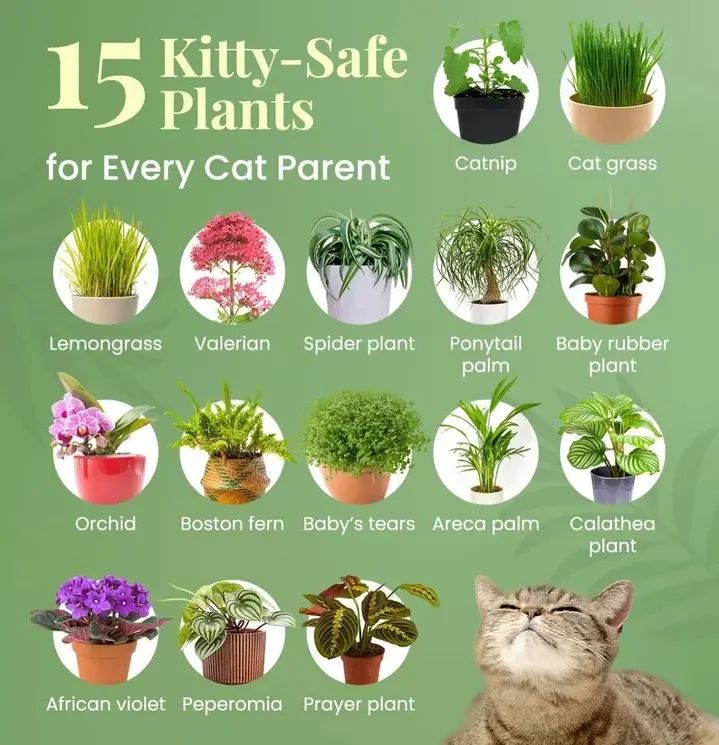
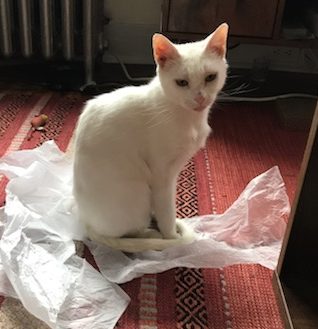
Other Household Items
There are numerous items that pose a threat to your cats. In your house, items such as human medications, poisonous plants and flowers, string, yarn, rubber bands and dental floss are are potential hazards. Ingestion of any of these can be poisonous or cause an intestinal blockage or strangulation. Holiday decorations are also dangerous for kittens and cats, particularly tinsel and lights.
A comprehensive list of both inside and outside items to avoid is available from the Humane Society.
Read more about kitten proofing your home from Hill’s Pet Nutrition.
I just adopted my first cat/kitten and I am clueless!
First thing’s first: DON’T PANIC! Your new friend will most likely be nervous, agitated or scared, so it is important for you to remain calm. When you bring your new cat or kitten home for the first time, prepare a room to take her to. This room should be quiet and closed-off from the rest of the home. This will allow your new cat to adapt to you and your home without the overwhelming task of a whole house (or other pets) to take in.
You should have in this room:
- A litter box
- Food and water
- A comfortable bed (a soft blanket in a box will do nicely – cats don’t discriminate!)
- A small selection of toys
Place the litter box as far away from the food and water as possible, as cats do not eliminate where they eat. Most cats are naturally inclined to use any grainy surface to relieve themselves, but it is helpful to place your cat or kitten near or into the litter box so she knows exactly where it is. Let your new cat stay in this room for a few days before introducing her to the rest of the home. If you have other pets, especially other cats, you will need to take it slower. (See below for details about pet introductions.)
More information about bringing your new cat home is available from the Humane Society.
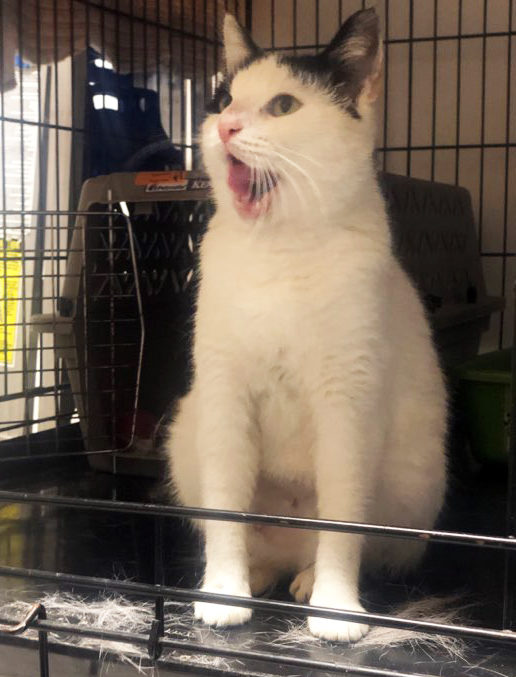
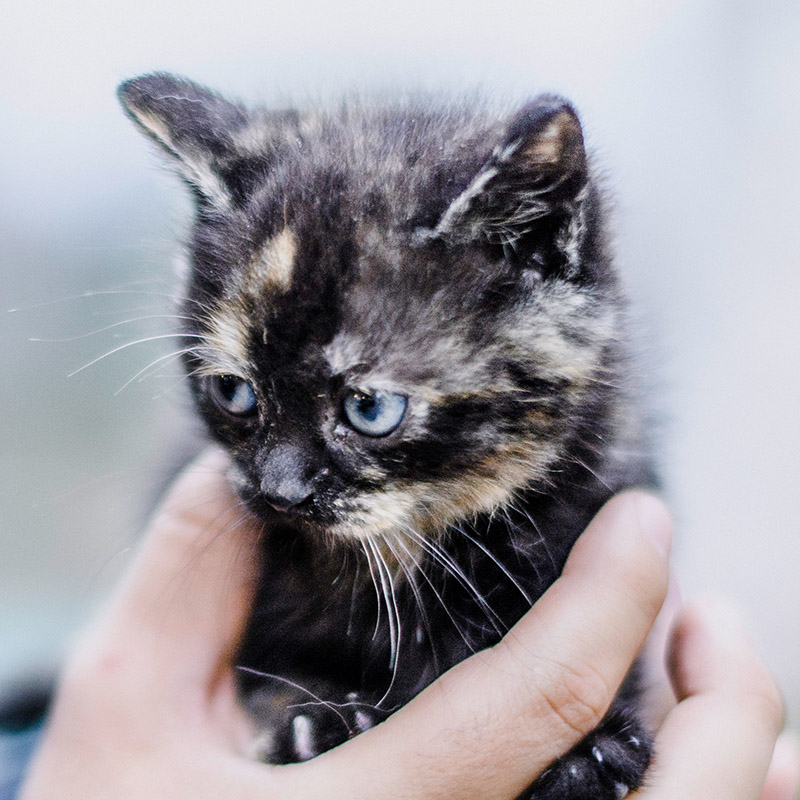
Do kittens need to be cared for differently than cats?
Yes! As with most animals, kittens require special considerations regarding their environment, activity and nutrition. Be sure to provide a safe haven for your kitten, ensuring that potential hazards have been eliminated. Provide plenty of kitten-safe toys to keep the energetic youngster entertained and out of trouble. A healthy diet is critical to the development of a kitten; feed the best quality kitten food you can afford.
More information is available in these Must-Know Tips for Raising Kittens.
Why is my new kitten scared of people?
Feral cats are untamed domestic cats. They are born to stray or feral cats and without proper socialization, they become too wild and fearful to live with humans. During For Animals’ Trap-Neuter-Return efforts, adult feral cats are returned to their colonies while the younger kittens are socialized and adopted. If your new kitten is still a bit wary of humans, or if you have come into contact with feral kittens, frequent handling will help her become more accepting of contact.
More information is available from the Feral Cat Initiative on Socializing (Taming) Feral Kittens and Interacting with a Shy Cat or Kitten Who Was Socialized Late.
How long will it take my cat to adjust?
This depends on the cat and the type of household they are adjusting to. It is normal for cats to hide for the first few days.
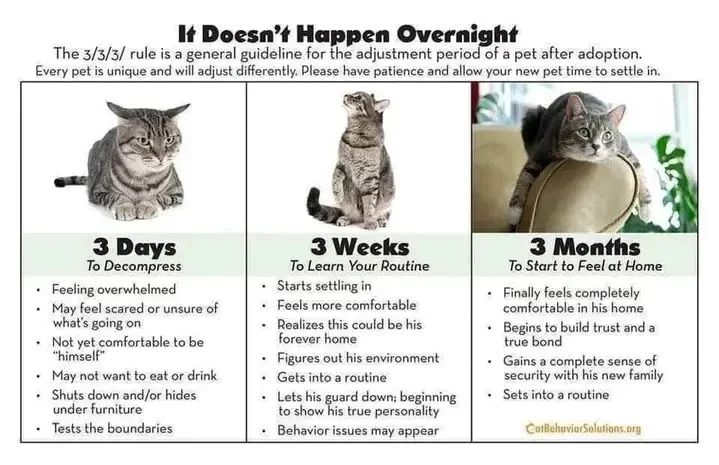
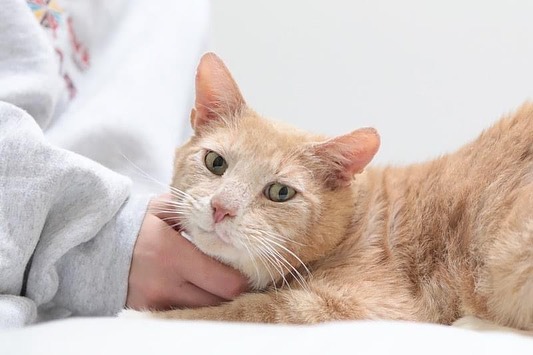
Is there anything I should know about caring for my aging cat?
An older cat still has plenty to offer in terms of love and companionship. However, there are special dietary and environmental considerations to keep in mind. Cat food formulated for senior cats will ensure that your cat nutritional needs are being maintained as her body goes through changes that can result in decreased nutrient absorption. Providing warm areas for rest and assisting with grooming in hard to reach places will help keep your cat comfortable.
Read more about caring for aging cats from Cornell’s College of Veterinary Medicine
Any Other Questions
any other questions take a look at the following resources
